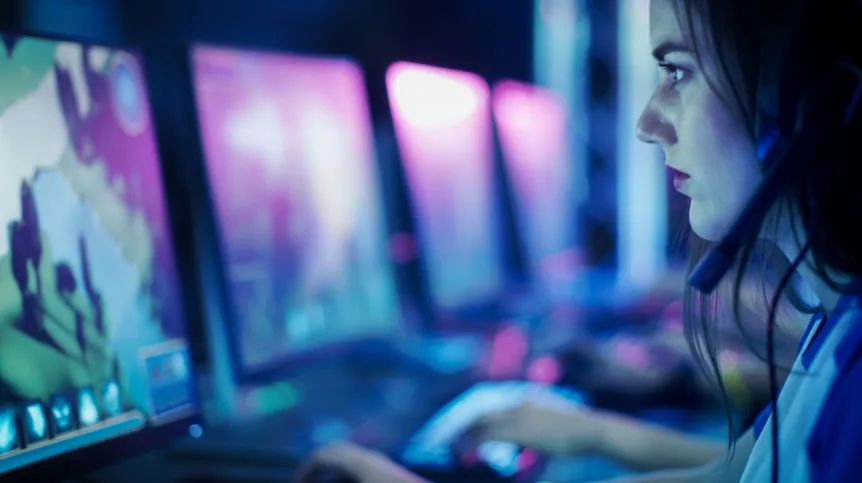
Time spent playing video games increased only slightly during the COVID-19 pandemic and showed no connection to mental health, according to a meta-analysis by scientists at Adam Mickiewicz University in Poznań.
“During the initial lockdown period, the idea was to encourage people to physically distance themselves from others. This was not easy, as it limited one of the basic human needs, direct social contact, which is crucial for mental health. Computer games began to be perceived as a potential substitute for everyday, positive experiences related to entertainment, relaxation, and stress reduction,” said Łukasz Kaczmarek, PhD, professor at the university.
“At the same time, concerns began to arise whether this gaming ‘medicine’ would have negative consequences. If people actually start playing more, which is still often associated with various problems such as addiction, depression, and aggression, will we do more harm than good?” he added.
The team reviewed 17 studies on gaming time (about 18,000 participants) and 22 studies on mental health (about 19,000 participants). They found a statistically small rise in gaming (d = 0.26).
“This type of change is considered difficult to notice in everyday life without detailed analysis. To illustrate: if we were to translate this value into the body weight of men, which in Poland is approximately 80 kg, it would be an increase of about 3.5 kg, something that is noticeable but definitely not evident,” Kaczmarek said.
The researchers found no statistical link between gaming and mental health. “From a population perspective, the assumption that gaming can significantly improve or worsen well-being during lockdown was not confirmed. Although there were a few studies indicating benefits or increased risk from gaming, overall we observed no association,” he explained.
“Among people who felt less satisfied with life during the pandemic, there were both those who played heavily and those who played very little. Conversely, among people who felt very well during lockdown, there were also avid gamers and non-gamers,” he added.
The finding, Kaczmarek said, challenges widespread perceptions. “This result is also very interesting, as there have been numerous studies in which gamers expressed the belief that gaming significantly supported their mental health during the pandemic. Perhaps these effects are subjectively overestimated or perceived too one-sidedly, perhaps even wishful thinking. They are certainly not significant at the population level.”
The study looked at both positive indicators, such as happiness, positive emotions, and relaxation, and negative ones, including depression, anxiety, stress, and loneliness. None correlated with gaming hours. The effects were similar across age, gender, region, and research quality.
“There are certainly other issues that are more important for protecting the mental health of our society than simply encouraging people to play more or less. In particular, as our analysis also shows, this applies to the amount of time spent playing, the role of which is overestimated,” Kaczmarek said.
“This doesn’t mean that gaming has no impact on well-being and mental health. However, most studies indicate that what matters most is not how much we play, but the quality of our gaming experience and our motivation for playing. Is it an engaging and enriching experience, or intellectual junk food?” he added.
“If a given game satisfies the need for autonomy, competence, and connection with others, and is not associated with hate, violence, or excessive competition, we can say with a high degree of probability that even a temporary increase in time spent playing it will not have negative consequences. It will simply be a form of entertainment and an effective way of satisfying typical human needs,” Kaczmarek said.
He stressed the results matter for future crises. “No one expected the coronavirus or lockdowns. We cannot rule out that other events will occur in the future that will force us to make similar changes in our daily lives. Therefore, it is crucial to know which activities and which aspects of them actually impact mental health in this context, and which, as it turns out, play no significant role.”
The findings were published in Humanities and Social Sciences Communications, a journal from Nature Portfolio.
Katarzyna Czechowicz (PAP)
kap/ bar/ ktl/
tr. RL













